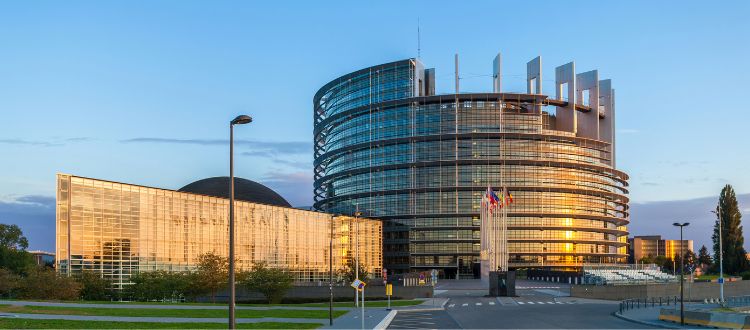HALF-BLACK SMOKE ON THE EUROPEAN CLIMATE PACKAGE
Today, while the intermediate climate negotiations towards COP27 monitored by our team continued in Bonn, MEPs in Strasbourg were called upon to express their opinion on the package of measures known as ‘Fit for 55’, the English acronym for all those measures that will bring European climate and energy policies closer to the European macro-objective of reducing the continent’s climate-changing emissions by -55% by 2030.
The Fit for 55 package is an integral part of the European Green Deal launched just a few months before the advent of the pandemic and aims to radically change – and regulate – EU energy policies on transport, industry, aviation, shipping, and heating of buildings. Between yesterday and today, under consideration in Strasbourg there are eight different reports, the result of lengthy mediations in the Commissions, on which agreement seemed to have been lacking for days.
It was this afternoon that the most controversial measure came to the count. At 3 p.m., the European Parliament’s ENVI committee rapporteur on the measure, Pascal Canfin (French, Macronian, Renew Europe group) organised a short press conference to explain how an emergence of crossed vetoes had in fact sunk this important first vote.
Despite a fairly quiet vote on the first articles relating to the enlargement and updating of the European Industrial Emissions Trading System (ETS, active since 2005) to the maritime and aviation sectors, the parliamentary groups failed to find a compromise on the text relating to the starting date of the end of free allocations of carbon credits within the ETS itself and towards the entry into force of the border adjustment mechanism for emissions scheduled for 2030, apparently a very technical issue but at the heart of the system and crucial for almost 11.000 European companies (representing 45% of EU emissions, including Norway, Liechtenstein and Iceland).
A first amendment proposal saw the end of free allocation of carbon credits for electricity generation in 2026 with the introduction of the new Carbon Border Adjustment Mechanism (CBAM) not in 2030 but in 2032; this proposal, supported by a very large majority but considered weak by environmental groups, was sunk by only 11 votes. What then passed was a second proposal, which saw the postponement of the end of free allocations to only 2034 with the introduction of the CBAM, This proposal was however not in line with the compromise found by the major political groups of the European Parliament – EPP, Renew Europe and S&D – therefore the whole report was finally rejected not finding a majority to support it and the file was sent back to the works of the Environment Committee. After this rejection, in the afternoon the vote on emissions and removals from land use was took place, as well as the politically and industrially sensitive vote on new emission standards for cars for sale in the EU. In spite of the sharp split mentioned earlier, however, the European Parliament then approved the report on new standards for cars in the late afternoon, confirming the planned halt to the sale of non-zero-emission cars to 2035 without any further political splits.
The affair of the crossed vetoes in plenary on the ETS reform, which might seem to be a partial setback in the political process of implementing the European Green Deal, as well as a first strong crack in the so-called ‘Ursula majority’ in Strasbourg, has been hailed by many environmental associations and green and progressive parties as a victory against proposals that are considered insufficiently ambitious nor in line with the Paris Agreement.
Responding to a journalist’s question, Pascal Canfin said that the setback on the ETS today in Strasbourg was in no way related to the current crisis in the Russian Federation and Ukraine nor to related short-term energy-political considerations, but to diverging long-term visions among the main European parties. Canfin himself later hailed the evening vote on car emission standards as a victory for the entire European Parliament, also in light of what had happened a few hours earlier.

